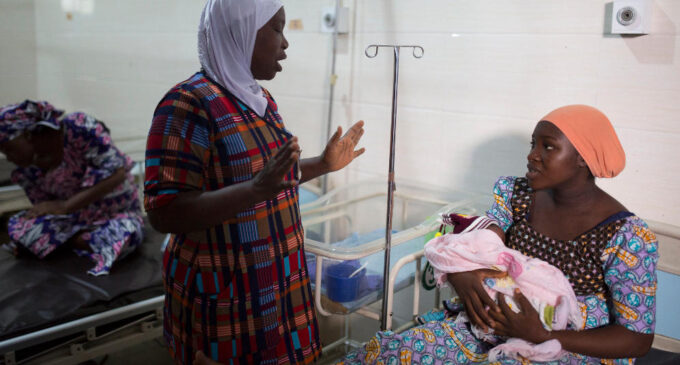Promoting a rights-based approach to reproductive health in Nigeria

BY DIRI DIEPRIYE
Reproductive health is a critical component of overall well-being and includes access to accurate information, safe services, and the ability to make informed decisions about one’s body and reproductive choices. In Nigeria, promoting a rights-based approach to reproductive health is essential to ensure that women and girls have the autonomy and agency to make decisions about their own bodies and reproductive health.
One of the fundamental principles of a rights-based approach to reproductive health is the recognition of women’s right to bodily autonomy. This means that women have the right to make decisions about their bodies, including whether or not to have children, access to contraception, and the right to safe and legal abortion. This autonomy is central to women’s ability to lead healthy and fulfilling lives, as it allows them to make choices that align with their values, beliefs, and goals.
In Nigeria, however, women’s right to bodily autonomy is often restricted by cultural norms, religious beliefs, and gender-based discrimination. This can manifest in a variety of ways, such as restrictions on access to contraception, limited information about reproductive health options, and barriers to safe and legal abortion services. These restrictions not only violate women’s rights to make decisions about their bodies but also have severe implications for their physical and mental health.
It is essential to recognise that women’s bodies are not political parties and should not be subject to the whims of politicians or policymakers. Women should have the right to make decisions about their reproductive health without fear of judgment or interference from external sources. This includes the right to access comprehensive reproductive health services, information, and education that empower women to make informed choices about their bodies and reproductive futures.
To promote a rights-based approach to reproductive health in Nigeria, it is crucial to address the underlying factors that contribute to restrictions on women’s autonomy. This includes challenging harmful cultural norms and practices that limit women’s access to reproductive health services, advocating for policies that support women’s rights to make decisions about their bodies, and providing comprehensive education and information about reproductive health options.
One way to promote a rights-based approach to reproductive health in Nigeria is through advocacy and awareness-raising campaigns highlighting the importance of women’s autonomy and agency in decision-making about their bodies. By raising awareness about women’s rights to reproductive health and challenging societal norms that perpetuate restrictions on women’s autonomy, we can create a more supportive and empowering environment for women to make informed choices about their reproductive health.
Additionally, healthcare providers should be trained to provide non-judgmental, compassionate care that respects women’s autonomy and supports their reproductive health decisions. Policymakers should also prioritise the development of policies and programmes that support women’s rights to make decisions about their bodies, including access to comprehensive reproductive health services and information.
In conclusion, promoting a rights-based approach to reproductive health in Nigeria is crucial to ensuring that women can make informed decisions about their own bodies and reproductive choices. By recognising and respecting women’s right to bodily autonomy, we can create a more equitable and healthy society where women are empowered to lead fulfilling lives based on their values and priorities.
It is essential to challenge harmful cultural norms, advocate for policies that support women’s rights, and provide accessible and comprehensive reproductive health services to ensure that every woman in Nigeria can make decisions about her body in a safe and supportive environment. Women’s bodies are not political parties – they are their own, and it is time to respect and protect their autonomy and agency.
Diri has more than five years of experience working as a women and children’s rights activist in Nigeria. She is an expert in responding to sexual and gender-based violence as a film writer and director and uses media to try to prevent sexual and gender-based violence. Currently, Priye is head of programs and advocacy at the Dorothy Njemanze Foundation.
Views expressed by contributors are strictly personal and not of TheCable.

















There are no comments at the moment, do you want to add one?
Write a comment